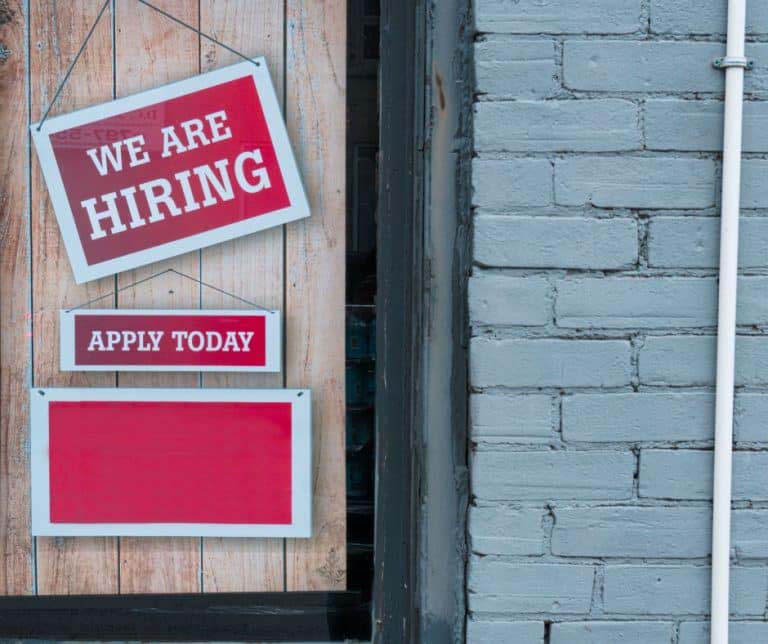This guide covers President Donald Trump to privatize Fannie Mae and Freddie Mac later in 2025. Fannie Mae and Freddie Mac are the two mortgage giants in the United States and the largest buyer of mortgage loans in the secondary mortgage markets. The role of Fannie Mae and Freddie Mac is to keep stability and liquidity in the housing markets. John Strange, a senior mortgage loan originator at Gustan Cho Associates says the following about how Fannie Mae and Freddie Mac works:
Fannie Mae and Freddie Mac set the lending standards on conventional loans. Conventional loans are often referred to as conforming loans due to the fact they need to conform to Fannie Mae or Freddie Mac guidelines.
Mortgage lenders use their warehouse line of credit to fund the mortgage loans they originate, process, underwrite, and close. Once the loan is closed, the mortgage lenders normally sells the funded loan to either a larger mortgage banker or to Fannie Mae or Freddie Mac directly. Eventually, all loans end up with Fannie Mae or Freddie Mac. Fannie Mae and Freddie Mae will not buy loans that do not conform to their agency mortgage guidelines.
How Does Fannie Mae and Freddie Mac Work
Conventional loans are not government loans. So why do conventional loans need to conform to Fannie Mae and/or Freddie Mac conforming guidelines? The reason is both Fannie Mae and/or Freddie Mac will not purchase conventional loans originated and funded by a bank and/or private lender if they do not conform to their guidelines.
Lenders use their own money (from their warehouse line of credit) to fund home loans. Mortgage lenders use their warehouse lines of credit to originate and fund mortgages.
Once the conventional loan, if funded, they sell them on the secondary market to Fannie Mae and/or Freddie Mac. Fannie/Freddie only buys loans that conform to their guidelines. In this article, we will discuss the breaking news of President Trump to privatize Fannie Mae and Freddie Mac.
The Roles of Fannie Mae And Freddie Mac
Both Fannie Mae and Freddie Mac were created by the U.S. Congress. The roles of Fannie Mae and Freddie Mac is to provide mortgage market liquidity, stability, and most importantly, affordability to lenders and borrowers in the U.S. The most important role of Fannie Mae and Freddie Mac is to provide access to funds to the countless financial institutions such as banks, credit unions, and mortgage lenders who originate and fund home loans. This task is accomplished by both Fannie and Freddie buying mortgage loans from registered and licensed mortgage companies.
Fannie Mae and Freddie Mac will either hold the mortgages they purchase on the secondary market in their investment portfolios and/or bundle them up as mortgage-backed securities (MBS) and sell them in the public market to investors and financial institutions.
By buying the mortgages from lenders, the lenders get their warehouse lines of credit relieved to repeat the process and originate and fund more loans. This enables hard-working individuals and families to purchase homes. By relieving lenders to pay down their warehouse lines of credit, lenders can always have a steady stable supply of funds to fund more loans.
Will Mortgage Rates Rise or Fall?
Trump’s plan to privatize Fannie Mae and Freddie Mac could shift the housing market. Learn what it means for you.
Liquidity For Mortgage Companies
Fannie Mae and Freddie Mac work closely with investors of the secondary mortgage markets in selling mortgage-backed securities. If it were not for Fannie Mae and/or Freddie Mac, these investors would not purchase mortgage securities. This process allows lenders to always have an ample supply of funds to fund more loans for real estate financing at low rates for homeowners.
Another role of Fannie Mae and Freddie Mac is to keep the mortgage markets in line and stabilize it when it is needed in times of turmoil and stress that may threaten the housing market and overall economy.
Many wonder what Trump to privatize Fannie Mae and Freddie Mac will do for the average U.S. consumer. We will discuss the potential results of President Trump To Privatize Fannie Mae And Freddie Mac.
News of President Trump To Privatize Fannie Mae And Freddie Mac
On Thursday, September 5th, 2019, The U.S. Department of Treasury announced its plans in making changes to the U.S. Housing and Real Estate Markets. Then the thought was put on hold due to the coronavirus pandemic and President Trump getting defeated to Joe Biden as President. One of the main factors in Trump to privatize Fannie Mae and Freddie Mac was so the two mortgage giants, Fannie Mae and Freddie Mac, will no longer be controlled by the government. This means privatizing Fannie Mae and Freddie Mac.
Fannie Mae and Freddie Mac are the two mortgage giants in the U.S. responsible for backing over 50% of the mortgages in the U.S. Both Fannie and Freddie have been under government conservatorship since the 2008 real estate and financial crisis.
President Trump to privatize Fannie Mae and Freddie Mac allows the two government sponsored enterprises (GSE) to be privatize control again like it was prior to the 2008 Housing Bubble Crash. The government will collect a fee for its role in protecting the two mortgage giants. Congressional approval is not needed on Trump to privatize Fannie Mae and Freddie Mac.
Trump Plans to Privatize Fannie Mae and Freddie Mac by End of 2025
Trump’s 2025 drive to privatize Fannie Mae and Freddie Mac may change the U.S. mortgage market. Find out what these agencies do, the benefits and drawbacks of privatizing, and the likely effects on borrowers, investors, and the wider economy.
Overview of Fannie Mae and Freddie Mac
Fannie Mae and Freddie Mac, formally known as the Federal National Mortgage Association and the Federal Home Loan Mortgage Corporation, are U.S. entities designed to keep money flowing into the housing market. They help make homes more affordable by buying mortgages from lenders, which puts cash back into those lenders’ hands so they can make more loans. Dale Elenteny, a senior mortgage loan originator at Gustan Cho Associates says the following about Trump to privatize Fannie Mae and Freddie Mac:
Once they purchase the loans, these agencies group them into mortgage-backed securities and sell them to investors. This whole setup tends to lower mortgage rates and broaden the pool of people who can buy a home.
Fannie Mae and Freddie Mac have been especially important during housing market shocks, stabilizing lending affordability and availability. After the 2008 financial crisis, the U.S. government placed Fannie Mae and Freddie Mac into conservatorship. This step was meant to calm the housing market and prevent further damage. Since then, the two companies have operated with the backing of the Treasury, giving lenders and homeowners stability. However, a new idea from former President Donald Trump hints that a new path may be on the horizon.
Trump’s Plan to Privatize Fannie Mae and Freddie Mac by 2025
Former President Trump’s 2025 housing plan calls for turning Fannie Mae and Freddie Mac into fully private companies. The goal is to lessen direct government roles in housing finance and let private investors take a larger role.
Trump and his team see this move as a way to update the housing market, cut federal programs, and invite more financial firms into the space.
If the plan goes ahead, Fannie Mae and Freddie Mac would move from government-run firms to publicly owned corporations. The government would stop backing their debts and the close supervision that has marked their conservatorship. Instead, future losses and profits would belong to private shareholders. Trump argues that more private players would create sharper competition, improve operations, and protect taxpayers from costly bailouts.
How Fannie Mae and Freddie Mac Help Homebuyers
For decades, Fannie Mae and Freddie Mac have been key players in helping families secure mortgages with affordable monthly payments. Here’s how they do it;
Mortgage Liquidity
By purchasing home loans from banks and credit unions, Fannie Mae and Freddie Mac gave those lenders the money they needed to keep offering loans to other homebuyers. This cycle of buying and lending ensures that cash for mortgages keeps flowing.
Securitization
Once they own the mortgages, Fannie Mae and Freddie Mac bundle them into mortgage-backed securities (MBS) and sell them to investors. Because these investments are considered stable, they attract money at lower rates, which in turn helps lower mortgage rates for customers.
Standardization
Fannie Mae and Freddie Mac also published clear rules about the kinds of loans they would buy. By following the same requirements for credit scores, down payments, and income verification, lenders can easily make loans that fit the network, which creates more reliability in the housing market.
Homebuyers, This Could Change Everything
If Fannie Mae and Freddie Mac go private, mortgage rules may be rewritten. Stay ahead of the curve.
Why Fannie Mae and Freddie Mac Should Go Private
Turning Fannie Mae and Freddie Mac into private companies could offer several advantages, even though there are also some downsides. Here’s a look at the main benefits:
Greater Efficiency and Smarter Technology
When Fannie Mae and Freddie Mac operate as private firms, they have a stronger incentive to cut costs and work faster. Companies that answer to shareholders often digitize paperwork, tighten risk checks, and speed up customer service. As a result, homebuyers could enjoy faster approvals and clearer loan product choices.
Lower Risk for Taxpayers
Suppose the federal government stops owning Fannie and Freddie. In that case, taxpayers won’t have to cover their losses if lending goes south again. The switch would mean the firms sink or swim on their balance sheets. This change can also help the government trim future bailouts and keep the national debt on a slower growth path.
More Action from the Private Sector
Turning the firm private could draw more investors into the mortgage market. An influx of private capital and competition can lead to a wider range of mortgage products and potentially lower rates for borrowers. More players in the space also mean lenders must keep their offers sharp and customer-friendly.
The Downsides of Putting Fannie Mae and Freddie Mac into Private Hands
Even though selling off Fannie Mae and Freddie Mac sounds good on paper, some serious problems could come with those decisions:
Higher Costs for Borrowers
Suppose Fannie Mae and Freddie Mac lose their government safety net. In that case, they might start chasing bigger profits and ignore some buyers. Homeowners with low credit scores, self-employed income, or smaller loans could find lenders who won’t sell them a mortgage. Without those government guarantees, lenders may raise interest rates or ask for higher down payments, which could shut many buyers out of the Market.
Bumpier Housing Prices
Fannie Mae and Freddie Mac keep the housing market running smoothly, especially when the economy sags. If they go private, however, the housing market could swing up and down more often. Private firms usually care more about making a quick buck than balancing the Market. When a recession hits, they may tighten credit, which could freeze mortgage lending and push prices down quickly, hurting buyers and sellers.
What Higher Mortgage Costs Could Mean
Private lenders often focus on profits, meaning they may charge more to cover bigger risks, especially in shaky economic times. Loans could cost more if Fannie Mae and Freddie Mac switch to private ownership. Without the federal government’s backing, the borrowing price may increase, and fewer Americans can buy homes.
What Privatization Could Change in Housing
Moving Fannie Mae and Freddie Mac into private hands would shake up the housing market. That could spark competition among lenders, but we can’t be sure how it will affect loan costs, loan availability, and the Market’s overall stability in the long run.
Affordable Housing Access
Many buyers, especially first-timers, depend on the low rates of government-backed loans. If those loans lose the government guarantee, rates may climb, making it harder for many buyers to find homes they can afford.
New Investment Paths
On the upside, privatization could open doors for new kinds of investments. More private money could flow into mortgages, leading to innovative loan products and fresh strategies for housing market investors.
Government Role in the Market
If Fannie Mae and Freddie Mac become private companies, the federal government would lose its ability to influence mortgage rates and decide how many home loans are available. This may lead to more mortgage defaults and change which groups gain the most from housing finance.
FAQs About Trump’s Plan for Fannie Mae and Freddie Mac
What does privatization mean for these companies?
Privatization means the government would no longer run Fannie Mae and Freddie Mac. They would become private companies owned by shareholders and no longer get government guarantees.
How could privatizing these companies change mortgage rates?
Privatization might push mortgage rates higher, since private firms often look for profit and may not carry the same mission to keep rates low for borrowers.
Could families lose affordable housing options if Fannie Mae and Freddie Mac go private?
If these firms go private, families with lower credit scores or unique lending needs might find it harder to get loans, since private firms prioritize profitability over social goals.
What are the benefits of privatizing Fannie Mae and Freddie Mac?
Privatizing Fannie Mae and Freddie Mac can lower the government’s financial risk, boost market efficiency, and bring more private capital into housing finance.
What are the risks of privatizing Fannie Mae and Freddie Mac?
The risks include potentially higher mortgage rates, a housing market that is more prone to swings, and a greater chance that some borrowers could be shut out of affordable loan options.
How would privatization impact the housing market?
If Fannie and Freddie were privatized, mortgage rates may rise, and the Market could experience more ups and downs, making it harder for some families to find affordable homes.
Privatizing Fannie Mae and Freddie Mac would change how housing finance works in the U.S. It could make the system more efficient and help the government limit its financial exposure.
It could raise mortgage costs and create a less stable market. The overall effect will depend on how the new private companies act and whether they can deliver affordable loans without the government intervening.
What Are The Effects of Trump To Privatize Fannie Mae and Freddie Mac
The majority of mortgage professionals and experts welcome the privatization of Fannie Mae and Freddie Mac and its release from conservatorship. Leading economists and housing analysts agree the government postpone the privatization until policy reforms have taken place and mastered.
This is a developing story. This breaking news caught everyone by surprise. We will keep our viewers informed as more news develops.
Big Changes Ahead for Homebuyers and Lenders
Trump’s plan to privatize Fannie Mae and Freddie Mac could reshape the mortgage market. Find out how it may affect rates, approvals, and your buying power.









